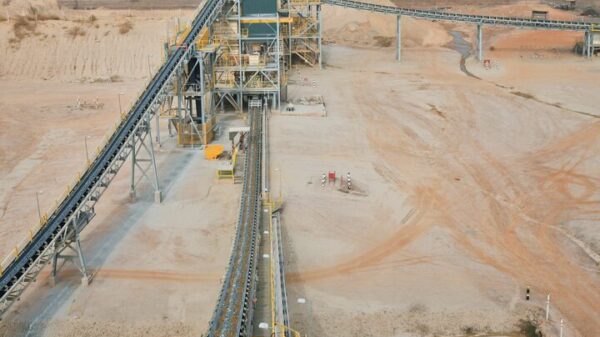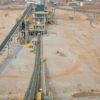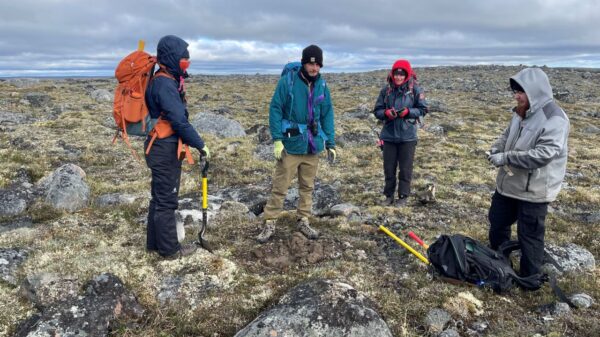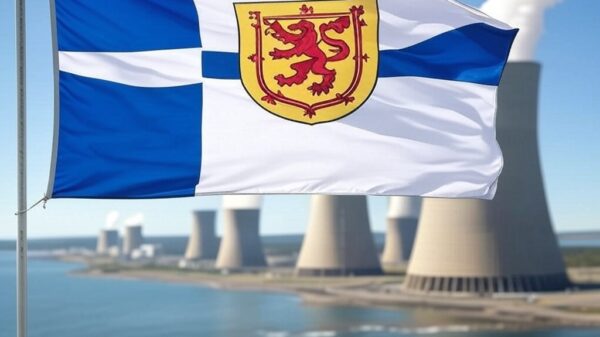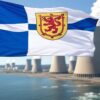The Canadian government has decided to implement a higher price on pollution in the country and expanded the list of provinces where a federal fuel charge will be applicable.
Steven Guilbeault, Canadian Minister of Environment and Climate Change announced on Tuesday that the strengthened price on pollution will come into effect in April next year. The government will be raising the price of carbon pollution by $15 per tonne annually between 2023-2030, beginning with an increased total rate of $65 per tonne in 2023.

Photo via Government of Canada
For large industries, the federal output-based pricing system will remain applicable in Manitoba, Nunavut, P.E.I. and Yukon but will no longer be relevant in Saskatchewan. The province is currently transitioning to apply its own framework to cover all relevant sectors.
The government also announced the upcoming climate action incentive payment rebate amounts for 2023 in applicable provinces which it says is a means of returning proceeds of pollution pricing to Canadian homes.
Canadas price on pollution is one of the strongest tools we have to fight climate change, but it also puts money back in the pockets of hardworking Canadians. pic.twitter.com/YtDoBlzw6D
— Steven Guilbeault (@s_guilbeault) November 22, 2022
Read more: BCUC to host January workshop on future of hydrogen energy in BC
Read more: Northern Ontario Mining Showcase returns to Toronto PDAC convention after acquiring federal funding
The government claims its approach to pollution is working and says Canadian families who have already been receiving the climate action incentive payments will only see that amount increase going forward. Additionally, families in Nova Scotia, Prince Edward Island (P.E.I.), and Newfoundland and Labrador will begin receiving the quarterly payments as well beginning in July next year after implementing the federal fuel tax provincially.
The federal charge on fuel will continue to apply to Alberta, Yukon, Saskatchewan, Ontario, Manitoba and Nunavut. British Columbia, Quebec, New Brunswick and the Northwest Territories will continue to have their own framework for implementing taxation on pollution.
Since April this year, the federal fuel charge on gasoline per litre has been $0.11 in applicable provinces. A comprehensive list of charges on other types of fuel can be found here.
As of next year, the payments issued to families of four will increase to $386 in Alberta, $340 in Saskatchewan, $264 in Manitoba and $244 in Ontario. For those provinces beginning to receive the payments, they will start at $328 per family in Newfoundland and Labrador, $240 in P.E.I. and $248 in Nova Scotia.
The government says citizens who reside in small and rural communities receive a 10 per cent add-on to their payments due to having limited access to clean methods of transportation. All citizens of P.E.I. are eligible to receive the supplemental income.
The government also says 90 per cent of pollution pricing revenue is returned to Canadian homes through the payments.
For large industries, the federal output-based pricing system will remain applicable in Manitoba, Nunvaut, P.E.I. and Yukon but will no longer be relevant in Saskatchewan. The province is currently transitioning to apply its own framework to cover all relevant sectors.
Alberta, Saskatchewan, B.C., Quebec, New Brunswick, Ontario, Newfoundland and Labrador and the Northwest Territories will continue to have province-specific emission cost systems for industrial pollution.
Read more: Exro Technologies centers in Calgary get international certification
Read more: Canada and U.K. ministers unveil first global report on coal power phase-out initiatives
The government also announced news of a $250 million investment in an “Oil to Heat Pump Affordability Grant” yesterday which it says will help thousands of Canadians’ transition to clean electric heat pumps rather than pricey, carbon-intensive household heating oil that is easily susceptible to global price fluctuations.
“What is important about the price on pollution in Canada is that all the revenue is returned to Canadians. Eight out of 10 Canadian households who receive Climate Action Incentive payments get more money back in their bank accounts than the price on pollution costs them. And these regular payments particularly benefit lower-income households,” said Chrystia Freeland, Minister of Finance and Deputy Prime Minister.
Minister Guilbeault added that the pollution pricing helps to fight climate change while putting money back in the pockets of Canadians. He says he’s particularly happy to see provinces raising standards in their industrial sectors to meet the country’s pollution pricing framework. He also says that starting this spring Canadians will be receiving even more money through the climate action incentive rebate cheques than they were previously.
rowan@mugglehead.com







